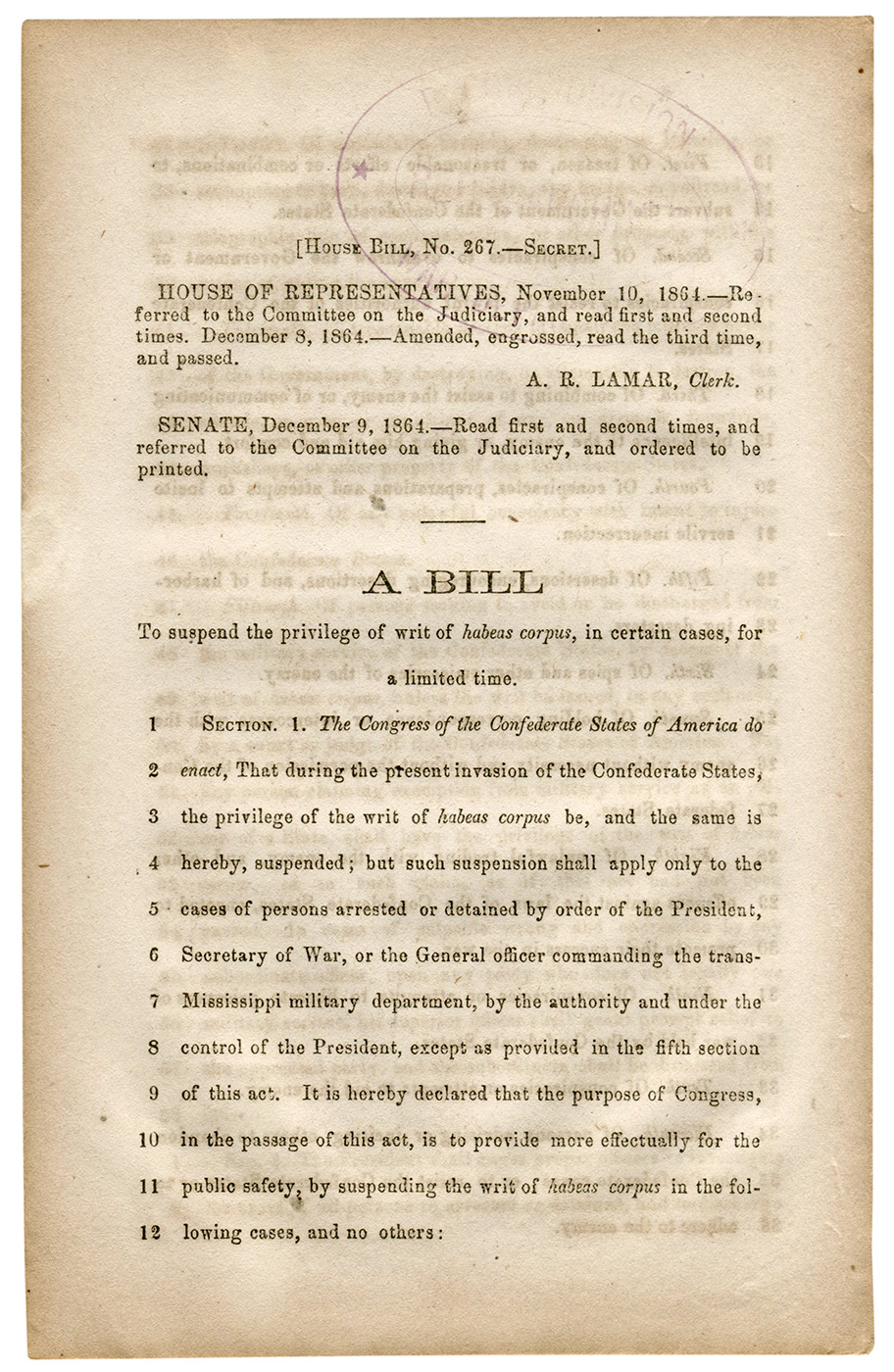(Confederate Suspension of Habeas Corpus) “House Bill, No. 267.—Secret… A Bill To suspend the privilege of writ of habeas corpus, in certain cases, for a limited time.” ([Richmond: 1864]), 6pp., 232 x 147 mm. (9 1/8 x 5 3/4 in.), faintly stamped “REBEL ARCHIVES RECORDS DIVISION WAR DEPARTMENT” at top center.
Although both the constitutions of the United and Confederate States allowed for the legislative branch to suspend the writ of habeas corpus, Jefferson Davis (unlike Lincoln) sought his Congress’ approval before declaring martial law around Norfolk and Portsmouth, Virginia from February 1862 to February 1863. The Confederate Congress granted Davis similar powers from March to August 1864.
In November 1864, as the situation for the Confederacy grew perilous, the Confederate Congress in Richmond granted Davis a ninety-day blanket authorization to suspend habeas corpus when he saw the necessity, specifying fifteen instances in which he could do so. This included treason, participation in conspiracy to overthrow the government, fomenting “servile insurrection,” and other acts against the state. Approved by the House on 10 November 1864 and the Senate on 9 December, this proved to be the last time the Confederate Congress allowed the President to suspend the writ before the end of the war in April 1865.
 Just as in the north, these suspensions by the Confederacy drew criticism, despite its constitutional validity. Vice President Alexander Stephens openly expressed his opposition to the move in the southern press in 1862: “…in this country there is no such thing as marital law, and cannot be until the Constitution is set aside, if such an evil day shall ever come upon us.”*
Just as in the north, these suspensions by the Confederacy drew criticism, despite its constitutional validity. Vice President Alexander Stephens openly expressed his opposition to the move in the southern press in 1862: “…in this country there is no such thing as marital law, and cannot be until the Constitution is set aside, if such an evil day shall ever come upon us.”*
Crandall, 467; Parrish & Wallingham, 731. OCLC 702706470†. We have located only 9 extant examples of this act in institutional holdings, including Library of Congress, Yale, Virginia Historical Society, University of Richmond, University of Virginia, State Library of North Carolina, Univeristy of Georgia, University of Illinois (HARWELL Collection), Francis Marion University. Auction records reveal no copies appearing at auction in the last four decades.
Extremely light toning at margins, clean minor tear along spine, else fine.
(EXA 5060) $400
__________
* Alexander H. Stephens, “Letter of the Hon. A. H. Stephens on Martial Law [3 Sept.1862]” Macon [Ga.] Weekly Telegraph, 10 Oct. 1862, 2.
† OCLC.

